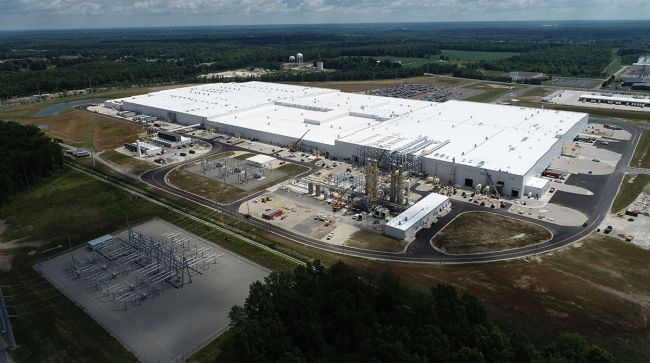DETROIT — Unionized workers at a General Motors joint venture electric vehicle battery plant in Ohio will see pay raises while they continue to negotiate a contract, if they ratify an interim deal announced Aug. 24.
The United Auto Workers union said that the 1,100 workers at the Ultium Cells plant near Warren, Ohio, will get $3- to $4-per-hour increases as well as thousands of dollars in back pay. They’ll vote on the interim deal in the coming days.
Ultium Cells said the average increase is 25%, and it would be effective on Aug. 28. Since it’s retroactive, workers would get $3,000 to $7,000 as well, based on the hours they have worked.
Workers at the plant, jointly owned by battery maker LG Energy Solution, now start at $16.50 per hour, which UAW President Shawn Fain has criticized as too low.
The UAW announced today that union workers at Ultium Cells have won a breakthrough agreement to immediately raise wages by $3 to $4 an hour, as well as thousands of dollars of back pay for hundreds of workers.https://t.co/Dl6MuBQcDa
— UAW (@UAW) August 24, 2023
UAW Vice President Mike Booth said the interim deal is still far short of what the workers should get given the skill level needed to do the jobs.
“We have been clear with Ultium: This wage increase is just the start,” Booth said in a statement.
“Providing this wage increase is the right thing to do for our team members, all of whom contribute so much to Ultium Cells’ growth and success,” Ultium Cells said. “This is just a first step. We continue to bargain in good faith with the UAW to reach a comprehensive contract for our employees, including a final wage scale.”
The union is negotiating a contract with Ultium Cells, but it also wants the Ohio battery plant and nine others in the U.S. announced by GM, Stellantis and Ford to be included in the UAW national contracts with the automakers.
It’s pushing for workers to make top union assembly plant wages of $32 per hour. All but one of the plants are joint ventures with South Korean battery makers.
Many in the industry say it will take fewer workers to make electric vehicles than it does to manufacture vehicles with combustion engines. The union says workers who may lose jobs at engine and transmission plants will need a place to go once the country makes a transition to electric vehicles.






